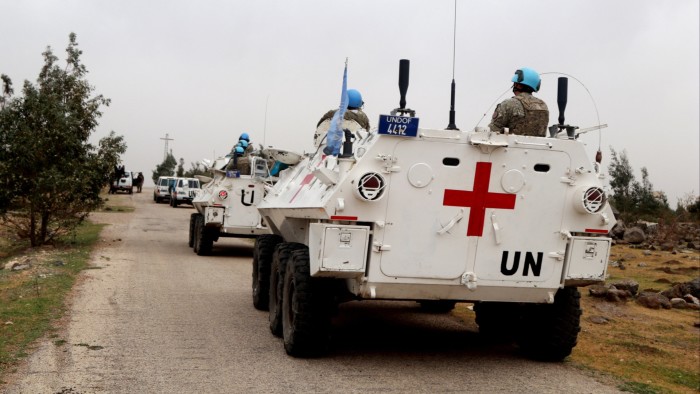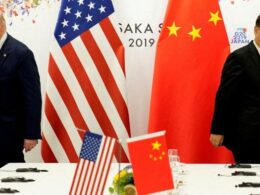Unlock the White House Watch newsletter for free
Your guide to what Trump’s second term means for Washington, business and the world
The UN is considering sweeping reforms that would transform the 80-year-old body as it braces for even deeper funding cuts from the Trump administration.
An internal review ordered in March by António Guterres, the UN secretary-general, recommends merging large departments to streamline operations and move staff from high-cost locations such as New York and Geneva.
If implemented, the reforms would be the UN’s deepest overhaul in decades, consolidating dozens of agencies and programmes into a handful of overarching departments. They would allow Guterres to argue that the UN is willing to make big changes ahead of funding talks with the US, its largest donor.
One proposal is to combine the World Food Programme (WFP), the Palestinian relief agency UNRWA and the humanitarian affairs body OCHA into a single organisation, according to a memo seen by the Financial Times.
Elsewhere, the refugee and migration agencies could be merged, as could UN Women and the UN Population Fund, which provides reproductive health services.
The reforms would allow Guterres “to go into the meetings and say — ‘Look, the UN is being proactive and is already creating efficiencies’”, said a person familiar with discussions around the review, which is called UN80. “What’s better — for the UN to make these changes now or be forced to make them when the money isn’t there?”
The UN said in a statement to the FT that the memo “is the preliminary result of an exercise to generate ideas and thoughts from senior officials on how to achieve the secretary-general’s vision” of making the UN “more effective and efficient”. The document was one of three “work streams” it is pursuing, the statement said.
The six-page memo — which was first reported by Reuters — bluntly acknowledges a core criticism of the UN: that it is bloated by inefficiencies from overlapping programmes and agencies, and by an expensive expatriate workforce often far from the regions they serve.
“The progressive proliferation of agencies, funds, and programmes has led to a fragmented development system, with overlapping mandates, inefficient use of resources, and inconsistent delivery of services,” the memo says.
The changes would come on top of severe UN cuts already being implemented due to the White House slashing foreign aid, including more than 80 per cent of USAID’s budget.
The WFP, which received about half its 2024 budget from the US, could lose almost a third of its staff. Unicef is bracing for a 20 per cent budget cut, according to internal memos. OCHA has already laid off 2,600 employees worldwide.
The financial pain could get deeper very quickly. The White House’s Office of Management and Budget has suggested the US cut all its support for the UN and other international organisations, while halving its contributions for other humanitarian assistance.
Those cuts would have to be approved by Congress as part of the overall US federal budget, but the suggestions are a formal warning to the UN and others that their largest donor is seeking to reshape their relationship.
On the ground, there has been a sharp drop in aid for some of the neediest, especially at the WFP.
It has been forced to cut the daily rations it is providing to millions of people displaced in Sudan by 30 per cent, while Rohingya refugees in Bangladesh have received less than half their usual monthly food vouchers — about $6 a month, versus $12.50 previously.
Source link









